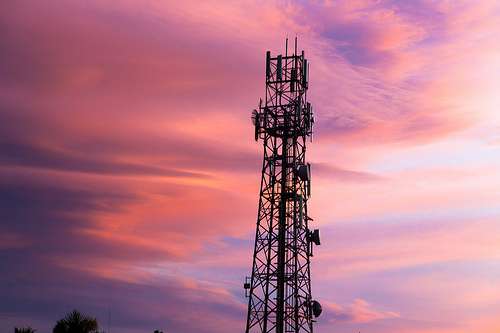October 25, 2015 weblog
Proposed FCC rules may smooth path to 5G wireless tech

Mobile network traffic is heading in a direction that pleases many in the wireless industry. The Federal Communications on Thursday proposed new rules in wireless frequencies above 24 GHz.
The FCC news release read: "The FCC took steps today to maintain United States leadership in wireless by proposing new rules for wireless broadband in wireless frequencies above 24 GHz. These proposed rules are an opportunity to move forward on creating a regulatory environment in which these emerging next-generation mobile technologies – such as so-called 5G mobile service – can potentially take hold and deliver benefits to consumers, businesses, and the U.S. economy."
Ars Technica's translation: "The Federal Communications Commission is drawing up rules for extremely high frequency spectrums that could be used in '5G' mobile broadband," wrote Jon Brodkin, senior IT reporter, who covers the FCC and broadband.
An article in Scientific American earlier this year took a close look at next-generation wireless: Mainly it has to deliver "a huge leap in performance to handle surging mobile network traffic, much of which is multimedia content," said Larry Greenemeier.
He said 4G wireless digital networks enable smartphones and tablets to deliver voice and data communications with bandwidths measuring many millions of bits per second and most networks enable users to download a file containing a full-length movie in less than 10 minutes. Nonetheless, it's the next generation—5G wireless—that will have to deliver the performance leap for surging traffic. "One of the most promising potential 5G technologies under consideration is the use of high-frequency signals—in the millimeter-wave frequency band—that could allocate more bandwidth to deliver faster, higher-quality video and multimedia content."
Monica Alleven, editor of FierceWirelessTech, said "folks in the millimeter wave tech community are happy to see the U.S. move forward in laying the foundation for 5G wireless technology innovations."
NYU Wireless said, "the FCC decision to put rules in place for the mmWave spectrum "is accelerating the potential for development of the Internet of Things, the Tactile Internet, new wireless personal medical devices, and breakthroughs as yet unimagined."
NYU Wireless had lobbied for action via filings with the FCC, Alleven said. It warned that in the race to 5G, the U.S. was falling behind other nations in research and development focused on the mainstream wireless technology sector. NYU Wireless, an academic research center, has been doing millimeter wave wireless technology research.
"Today's decision will open huge bands of licensed and unlicensed wireless bandwidth to enable super-fast wireless and Wi-Fi," responded NYU Wireless. Carriers will be encouraged to serve dense areas with more bandwidth and enable broadband service to areas currently unprofitable to reach."
But what does the FCC announcement actually set in motion? John McKinnon in The Wall Street Journal said, "The FCC's action on Thursday begins to create a regulatory framework for making greater use of that higher-band spectrum. Use of the high-band spectrum would be just one part of the 5G network, which likely would weave together a patchwork of different technologies."
Another response was from the CTIA-The Wireless Association, which issued a statement that "CTIA commends the Commission on today's important step to free up additional spectrum so that the U.S. remains the world mobile leader. It will play a critical role in the U.S. wireless industry's migration to 5G."
Verizon's statement was also upbeat, saying that "the FCC took another step toward actualizing such policies with its adoption of a Notice of Proposed Rulemaking that will look at making spectrum frequencies above 24 GHz available for next-generation (5G) mobile broadband. U.S. leadership in deploying 4G wireless technologies jumpstarted remarkable cycles of innovation in mobile broadband, and the FCC action today is extremely important to maintaining that leadership."
More information: www.fcc.gov/document/fcc-promo … -wireless-technology
© 2015 Tech Xplore





















